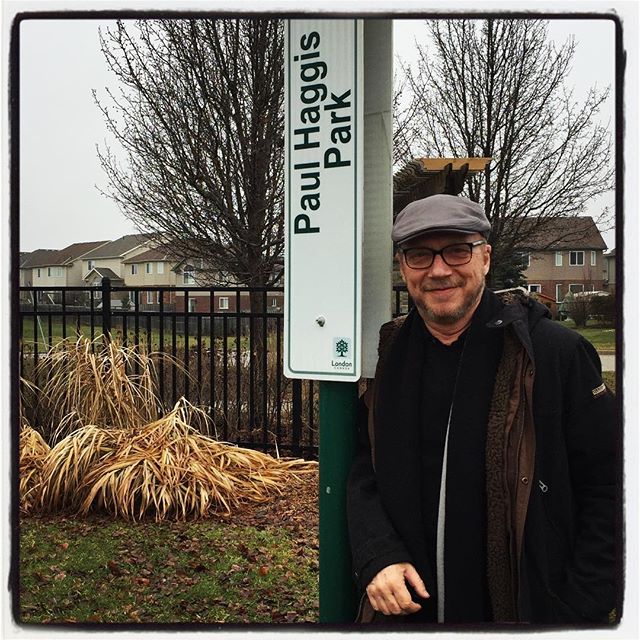Less than a week after councillors voted to remove a former Londoner’s name from city amenities, it’s now Paul Haggis Park that is being called into question.

The park on Bateman Trail in south London is named after London, Ont.-born, Oscar-winning director Paul Haggis, 69, who was detained on Sunday for an investigation of allegations that he sexually assaulted a woman in southern Italy, Italian news media said, quoting local prosecutors.
Following the news, the London Abused Women’s Centre’s executive director called for Haggis’s name to be removed from the park.
“When is enough enough? When will women be believed? When will we be able to not have this kind of news pop up? You know, two times in less than a week,” said Jennifer Dunn.
This is not the first time reports of sexual assault regarding Haggis have come forward, or put the park’s name into question.
In 2018, Ward 3 Coun. Mo Salih proposed a motion to change the park’s name that was defeated 10-2 after sexual assault allegations made against the director were made.
Those who voted in favour of keeping the name felt it wasn’t city hall’s place to act without a resolution to the allegations made against Haggis.
“It was almost as if we were waiting for a conviction to happen before there was any movement on that kind of thing, and then you have what happened last week with Trooper Mark Wilson and city council moved very quickly,” Dunn said.
“I think that the City of London is doing such a great thing and we have that stand-alone pillar in the strategic plan around creating a safe London for women and girls and I think that we need to do what we say we’re going to do, and we need to support women and girls by showing them we will not stand for this kind of behaviour, conviction or not.”
The news agency LaPresse and several other Italian media carried a written statement from prosecutors in the city of Brindisi that they were investigating allegations a “young foreign woman” was forced to have “non-consensual” sexual relations over two days.
Haggis’s lawyer, Priya Chaudhry, said he could not discuss the evidence under Italian law.
Moving forward Dunn thinks the whole process of naming things after people needs to change.
“There are other ways to recognize individuals and what they’ve done for the community or what they’ve done for the world, and we don’t need to name things after people,” Dunn said.
During last week’s council meeting, London city councillors voted to change all amenities named after Wilson after evidence came to light that he assaulted a fellow Canadian Armed Forces (CAF) member.
When asked if council would look at similar measures for Haggis, Mayor Ed Holder had this to say: “These allegations are very serious, and troubling. Unlike where Trooper Wilson was concerned, at this time we have neither a guilty plea, nor the results of a legal proceeding to help inform our next course of action. Regardless, I think this is yet another example why naming landmarks after people is an exercise fraught with risk.”
“I applaud this council for previously directing staff to review policies which govern the naming of streets and other public amenities. That work is actively underway, and a report is expected back shortly after the swearing-in of the next council.”
— with files from Global News’s Devon Peacock and The Canadian Press







Comments